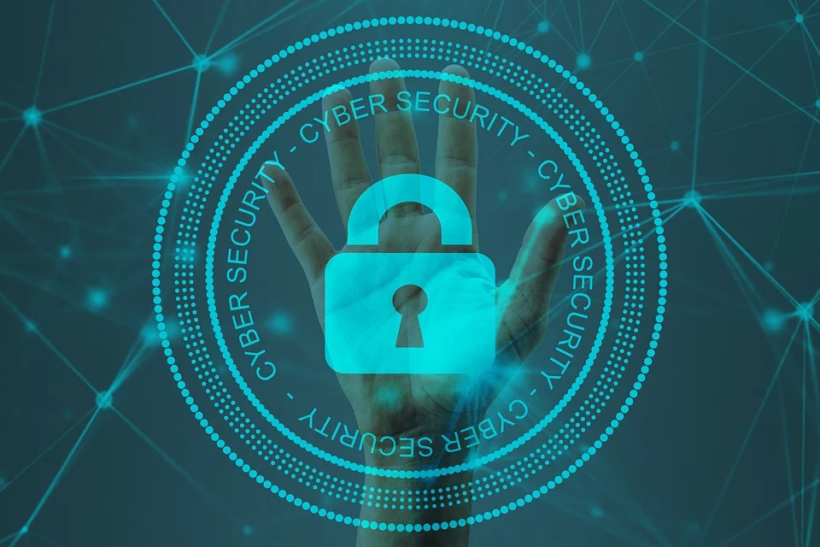Technological advances today have made individuals and businesses more interconnected than ever. But the same networks that keep people connected also abound with cyber threats. Cybersecurity is a must because companies now rely on these networks to process financial transactions, sell products, and market their services online.
The choices and costs of these cybersecurity solutions vary. And some small- and medium-sized businesses may not have enough capital or budget to afford most of them.
Still, cybersecurity is an essential part of business operations. This article explains what cybersecurity is and how it is vital to small businesses.
What is cybersecurity?
Cybersecurity is an approach to protecting networks, computers, data and people from unauthorized access, acquisition or damage brought about by cyber threats.
Cybersecurity is not just a single action but an ongoing process that must be implemented and maintained regularly. Failure to do so may expose your critical IT assets to various risks like fraud or theft.
For businesses, a well-implemented cybersecurity policy allows you to detect investigate, and resolve cyber threats with little to no loss to your critical assets.
Importance of cybersecurity for small businesses
While large businesses like multinational companies have the capital to invest in comprehensive cybersecurity programs, small businesses may not have that luxury.
Nevertheless, cybersecurity is still an essential part of a small business’ operations. Even the most basic security measures can help prevent a large number of threats.
If you have a small business, you do not have to invest in expensive security packages. Instead, consider assessing your needs and budget first to determine what cybersecurity measures are sufficient to protect your business’ core assets.
So how does cybersecurity benefit you and your business? The following are some of the ways that cybersecurity helps small businesses.
Protects computers and networks from cyberattacks
In 2018, around 80,000 cyberattacks happened every day or about 30 million attacks in a year. In 2017, 61 percent of cyberattack victims were businesses with fewer than 1,000 employees.
From these two statistics alone, you can see the scale of the threats from cyberattacks on small- and medium-sized businesses. Without cybersecurity measures, those statistics might have been higher.
Small businesses can protect their networks and IT equipment by updating their security software like antivirus and anti-malware applications. Having network protection like firewalls also increases your chances to prevent cyberattacks.
In terms of investment, these measures are cost-effective solutions that may fit into a small business’ budget.
Familiarizes employees with security principles
In a 2000 book, Secrets and Lies: Digital Security in a Networked World, author Bruce Schneier mentions that humans are the weakest link when it comes to security. He also writes that people are ultimately responsible for failures in security systems.
Without proper training and security familiarization, humans are likely to succumb to cyber threats. Phishing is one example of an attack that can victimize many people.
In a phishing attack, the culprit pretends to be an authoritative figure or someone the victim knows. The victim is tricked into providing critical information like personal data or financial records. When the victim realizes what happened, it may be too late.
For businesses, this vulnerability can turn employees into liabilities.
Providing security training can help employees become less prone to such attacks. This way, employees become part of the cybersecurity solution.
Providing security training can help employees become less prone to such attacks.
Security familiarization may vary in cost depending on the scope and number of employees. However, even the most basic security training is already a great help and investment in preventing a significant number of cyberattacks.
Keeps crucial information backed up
Early detection and prevention of cyber attacks can save business entrepreneurs a lot of headaches. However, a breach may still happen regardless of the reduced possibility of an attack.
In this situation, data critical to the business must not be lost or, if it is, must be recoverable at the very least.
Having the business’ essential files backed up and stored in a safe and secure place is a must, especially for companies that rely on these data for most of their operations.
Backing up data and the capability to restore this data helps ensure business continuity and minimal to zero downtime, even in the event of a security breach.
Controls access to computers and data
Employees have roles and responsibilities within a business. As such, some employees need access to critical information or resources while others do not.
A good cybersecurity practice is to ensure that only authorized employees can access specific resources or files.
One way to accomplish this measure is to set user accounts, passwords and access rights depending on the employees’ roles and positions.
Even locked storage for laptops and other business assets can minimize the chances of theft or damage.
Maintains best practices on financial transactions
Banks are some of the most trusted and secure institutions when it comes to anti-fraud solutions. Consider working with them to ensure that your financial transactions are protected.
In addition to implementing security measures like anti-malware software, firewalls and employee training, conduct your financial transactions using secure networks and systems.
For example, avoid using public Wi-Fi when making online payments or refrain from processing fees on the same computer for regular internet surfing.
Provides a mobile device security plan
Businesses may use mobile devices to store critical business information like work files or trade secrets that give the companies an edge. If the device gets damaged, lost, or stolen, that information may be compromised.
A mobile security plan can address those vulnerabilities to ensure business data is kept secure and protected. Some examples of this measure include mobile insurance or an auto-erase feature if the device is lost or stolen.
Secures wireless networks
Wi-Fi is a convenient method to connect computers and mobile devices to your network. However, hackers can also use Wi-Fi to breach your system and access your network without you knowing about it.
One straightforward solution to prevent this security vulnerability is to set up your Wi-Fi with a strong password and encryption.
If you are using Wi-Fi strictly for business purposes, you may hide your wireless network. You can do this by not having the router or access point broadcast its Wi-Fi name. This way, hackers will not find your wireless network easily.
Takeaways
Cybersecurity is crucial for any company relying on IT resources and the internet to operate, be that a large, medium or small business.
Different security plans and measures require a varying amount of investment. Without adequately assessing your business’ needs, you may invest too much or too little in cybersecurity or even end up still vulnerable to cyber threats.
Consult an IT professional or business consultant to determine what cybersecurity solutions are best for your business and budget.
Originally published Oct. 11, 2021.






